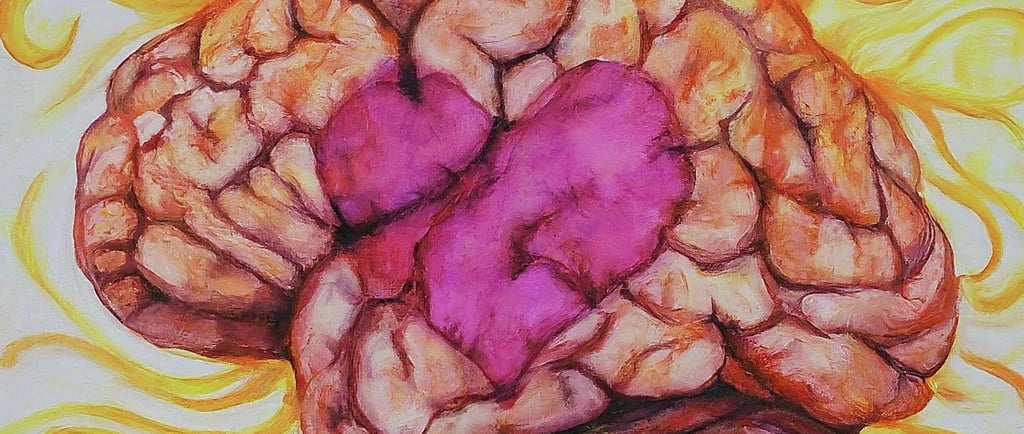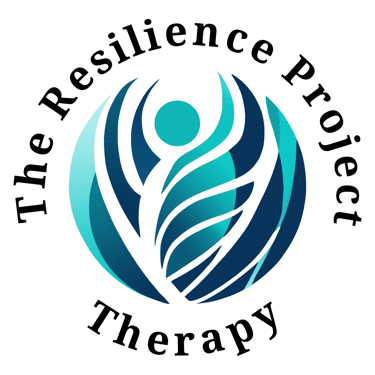The Hug Hormone
How to Feel More Connected and Happy
Christian Gray Hering, LCSW
4/3/20243 min read


Have you ever noticed how a hug from a loved one can instantly melt away stress? Or how spending time with a furry friend can make all your worries fade? There's a reason for that warm, fuzzy feeling – it's all thanks to a powerful little molecule in your brain called oxytocin [1].
Think of oxytocin as your body's built-in "cuddle chemical." It's released during positive social interactions, helping you feel connected, loved, and supported. This "feel-good hormone" plays a big role in your mental well-being, fostering happiness, reducing stress, and even strengthening relationships [1].
Why You Need More Hugs (and Other Feel-Good Activities!)
Feeling down? Chances are, your oxytocin levels could use a boost. Here's how this amazing hormone can help you:
Chill Out: Oxytocin acts like a natural stress reliever. It helps lower the fight-or-flight response, making you feel calmer and more relaxed [3].
Beat the Blues: Feeling disconnected can worsen depression. Oxytocin helps you bond with others, which can combat feelings of isolation and loneliness [1].
Make Friends (and Keep Them): Oxytocin makes you more trusting and empathetic, making it easier to connect with others and build stronger relationships [2].
Love is in the Air (Literally): Oxytocin plays a key role in creating happy, healthy relationships. It promotes positive communication and strengthens the bond between romantic partners [4].
Unlocking the Power of Hugs (and More!)
The good news is, you don't need a science lab to get your daily dose of oxytocin. Here are some simple ways to boost this feel-good hormone naturally:
Cuddle Up: Cuddles, hugs, and even holding hands trigger oxytocin release. Show your loved ones some affection! [1].
Quality Time is King: Ditch the phone and spend meaningful time with friends and family. Laughter, conversation, and shared experiences are oxytocin powerhouses [1].
Be Kind, Rewind: Helping others, volunteering, and doing good deeds all activate the oxytocin system, leaving you feeling connected and rewarded [1].
Pet Power: Studies show that interacting with pets, especially furry friends like dogs, can significantly increase oxytocin levels [6]. Who needs a therapist when you have a cuddly companion?
Mind Your Mind: Meditation and mindfulness practices can promote relaxation and well-being, indirectly stimulating oxytocin release [5].
The Spiritual Connection
Interestingly, spiritual practices may also play a role in boosting oxytocin. The sense of awe and wonder often experienced during prayer, meditation, or spending time in nature can trigger the release of oxytocin [6]. Feeling part of something larger than yourself and connecting with a higher power can foster feelings of love, compassion, and acceptance, all of which are linked to oxytocin production [6]. A study by Duke University [6] even found that participants who received intranasal oxytocin reported experiencing more spiritual emotions during meditation, including feelings of awe, gratitude, and hope.
Make it a Habit, Feel the Benefit
While a single hug or act of kindness can give you a temporary oxytocin boost, the real magic happens with consistency. By incorporating these activities into your daily routine, you create an environment for your body to produce more oxytocin, leading to lasting improvements in your overall well-being [1].
Remember, feeling connected and loved is essential for happiness. So go hug your loved ones, reach out to friends, and don't underestimate the power of a kind gesture. By harnessing the power of oxytocin, you can create a more fulfilling and joyful life.
If you're struggling with mental health challenges, you're not alone. Don't hesitate to seek professional help from a therapist or counselor who can provide additional support and guidance on your journey to mental wellness.
Sources Cited
[1] HealthCentral: Oxytocin: What It Is, How It Makes You Feel & Why It Matters https://www.health.harvard.edu/mind-and-mood/oxytocin-the-love-hormone
[2] The Journal of Physiological Sciences: Oxytocin: a therapeutic target for mental disorders https://pubmed.ncbi.nlm.nih.gov/23007624/
[3] Verywell Mind: Does Oxytocin Affect Your Mental Health? [https://www.ncbi.nlm.nih.gov/
[4] Mental Health America: Oxytocin https://mhanational.org/
[5] Greater Good Magazine: Can Meditation Increase Oxytocin? https://amberwoodhealth.ca/meditation-for-hormone-health/
[6] Proceedings of the National Academy of Sciences of the United States of America: Effects of Oxytocin Administration on Spirituality and Emotional Responses to Meditation
The Resilience Project Therapy
Mailing
P.O. Box 832182
Richardson, TX 75083
Contacts








